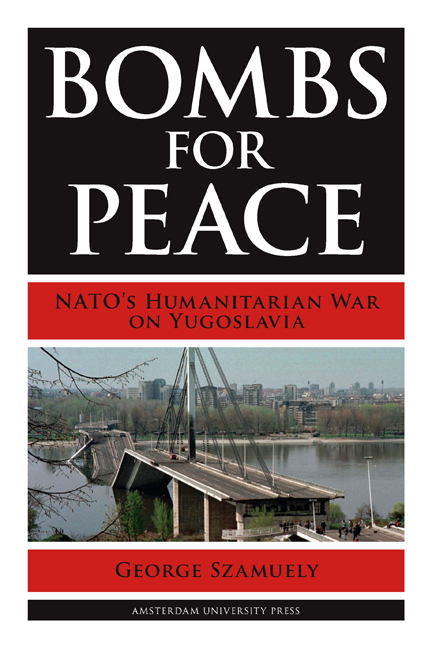Book contents
- Frontmatter
- Dedication
- Contents
- Acknowledgements
- Introduction
- 1 Yugoslavia: Destroying States for Fun and for Profit
- 2 In Search of the Good War: Bosnia: April 1992 to May 1993
- 3 Peacemaking v. Humanitarianism: Bosnia and Croatia: June 1993 to December 1995
- 4 Humanitarianism Fulfilled: Bosnia’s Unsafe Areas
- 5 Kosovo: The Denial of Sovereignty
- 6 Kosovo: The set-up
- 7 Kosovo: Standing up to the Yugoslav Goliath
- Conclusions: Ensuring Success by Lowering Standards
- Notes
- Select Bibliography
- Index
5 - Kosovo: The Denial of Sovereignty
Published online by Cambridge University Press: 12 February 2021
- Frontmatter
- Dedication
- Contents
- Acknowledgements
- Introduction
- 1 Yugoslavia: Destroying States for Fun and for Profit
- 2 In Search of the Good War: Bosnia: April 1992 to May 1993
- 3 Peacemaking v. Humanitarianism: Bosnia and Croatia: June 1993 to December 1995
- 4 Humanitarianism Fulfilled: Bosnia’s Unsafe Areas
- 5 Kosovo: The Denial of Sovereignty
- 6 Kosovo: The set-up
- 7 Kosovo: Standing up to the Yugoslav Goliath
- Conclusions: Ensuring Success by Lowering Standards
- Notes
- Select Bibliography
- Index
Summary
Following the signing of the Dayton Accords, the United States returned to the stance it had adopted at the start of the Yugoslavia conflict. Milošević was the source of evil in the Balkans. There could be no peace until he was gone. This was an extraordinary turnaround. The Americans were well aware that it was Milošević, more than any other leader, who ensured agreement at Dayton. During the signing ceremony in Paris, Clinton himself had told Milošević, “I know this agreement would not have been possible without you. Whatever our differences in the past, you made Dayton possible.” Clinton also said that he was counting on him “to keep the Bosnian Serbs from derailing implementation.”
As usual, the media followed the government's lead. They stopped referring to Milošević as president of Serbia or Yugoslavia; he reclaimed the sobriquet of Serbia's “strongman” or Serbia's “dictator.” However, it wasn't their oft-professed commitment to peace and stability that made U.S. officials so keen to be rid of Milošević. Their hostility to Milošević was rooted in more basic fears. Milošević had rejected nato membership as well as the “shock therapy” economic program that member countries of the former Soviet bloc had enthusiastically embraced. The issue at the end of the 1990s was what it had been at its start: was the liberal, capitalist “market democracy” sociopolitical model the last stage of human development? Milošević's continuing survival and popularity suggested that the answer might be no. John Norris, former communications director to Strobe Talbott, deputy secretary of state during the Clinton administration, disclosed the real reason for the u.s. hostility toward Milošević. What stuck in Washington's craw, Norris wrote, was:
As nations throughout the region strove to reform their economies, mitigate ethnic tensions, and broaden civil society, Belgrade seemed to delight in continually moving in the opposite direction. It is small wonder nato and Yugoslavia ended up on a collision course. It was Yugoslavia's resistance to the broader trends of political and economic reform – not the plight of Kosovar Albanians – that best explains nato's war. Milošević had been a burr in the side of the transatlantic community for so long that the United States felt that he would only respond to military pressure.
- Type
- Chapter
- Information
- Bombs for PeaceNATO's Humanitarian War on Yugoslavia, pp. 329 - 380Publisher: Amsterdam University PressPrint publication year: 2013



